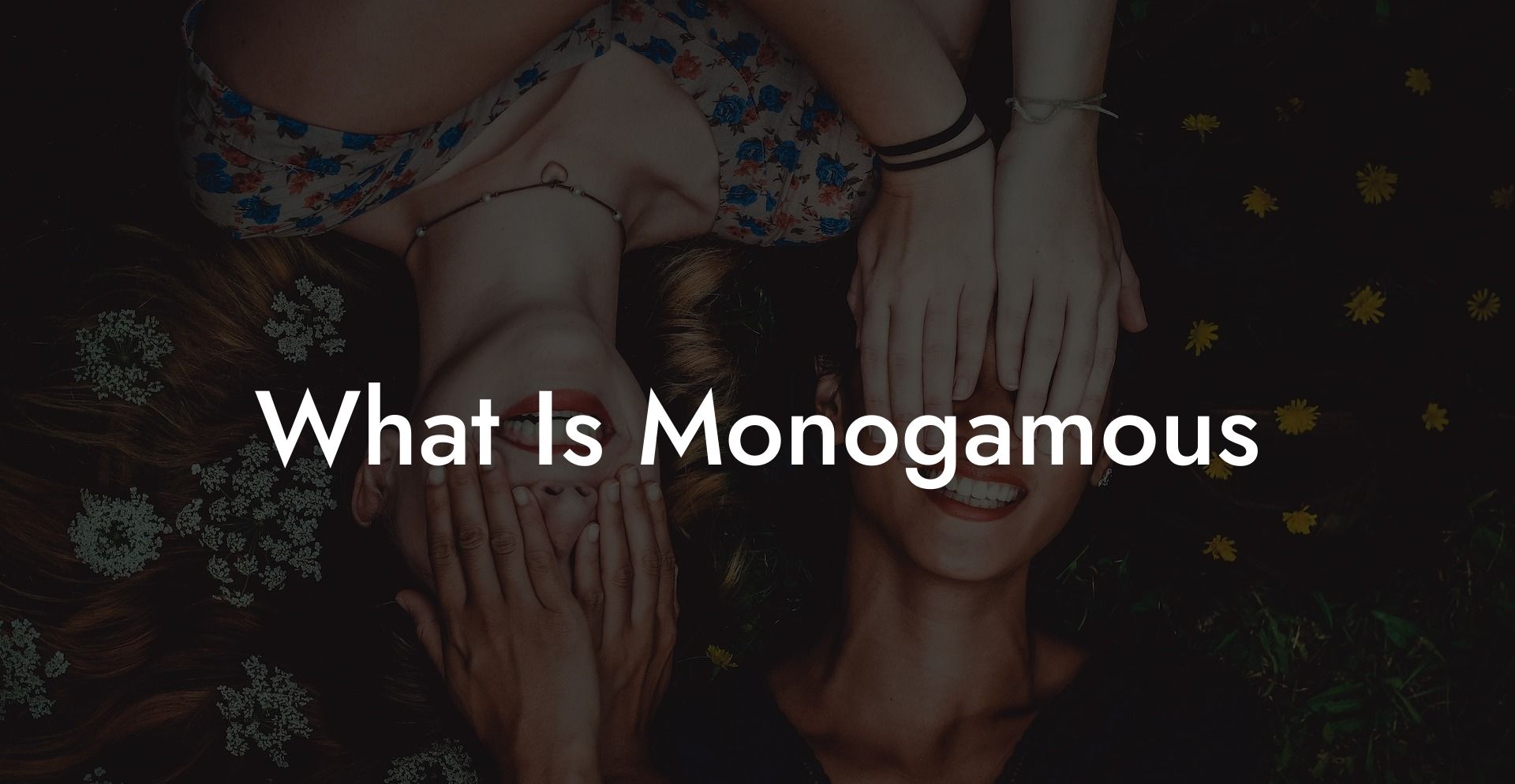The concept of monogamy has been the widely accepted norm in many societies, shaping relationships and families for generations. But what exactly does it mean to be monogamous? In this blog post, we'll delve deep into the definition of monogamy, explore different types and variations, and provide a clearer understanding of this practice in various contexts.
Defining Monogamy
Monogamy is the practice of having only one romantic or sexual partner at a time. This term is derived from the combination of two Greek words - 'mono' meaning single, and 'gamos' meaning marriage. Monogamy can be broadly classified into two types: sexual monogamy and social monogamy.
Sexual Monogamy
Sexual monogamy refers to the exclusive sexual relationship between two individuals. This means both partners are committed to each other emotionally and sexually, and they restrict their physical intimacy to one another.
Social Monogamy
Social monogamy is characterized by two individuals who form a strong emotional bond and live together, sharing resources, parental duties, and often engaging in non-sexual activities. Although they may not be in a sexually exclusive relationship, they are committed to each other in other aspects of life.
While monogamy seems straightforward, there are further variations that shape people's relationships:
- Serial monogamy: A pattern in which individuals establish a relationship with one partner at a time, but over time, they move on to another partner once the current relationship ends. This can lead to a series of monogamous relationships throughout a person's life.
- Marital monogamy: A legally or socially recognized union between two individuals who are committed to each other both emotionally and sexually. This is often accompanied by cohabitation and sharing of resources.
- Consecutive monogamy: Similar to serial monogamy, this type involves partners being in monogamous relationships consecutively but not simultaneously.
Benefits of Monogamy
Monogamy offers several advantages that make it an appealing choice for many individuals. Some of these benefits include:
- Emotional security: Being in a monogamous relationship provides a sense of emotional safety and stability that is difficult to achieve in non-monogamous relationships.
- Reduced risk of STIs: Monogamous couples who are committed to each other and practice safe sex have a significantly lower risk of contracting sexually transmitted infections.
- Shared responsibilities: Couples who choose monogamy can share financial responsibilities, parenting duties, and life decisions, potentially reducing stress and enhancing wellbeing.
- Social acceptance: Monogamy is widely accepted and recognized by society, which can provide a level of legal and social protection for couples that non-monogamous relationships may not enjoy.
What Is Monogamous Example:
Adam and Eve have been in a monogamous relationship for the past five years. They have both agreed to be committed sexually and emotionally to each other and have built a life together. They share finances, parenting responsibilities (for their 2-year-old daughter, Lily), and make major decisions as a unified team. With the stability and security provided by their monogamous relationship, they have established a nurturing home environment for Lily to grow up in and feel loved.
The concept of monogamy has been ingrained in human society and continues to be a popular choice for many. Understanding the meaning and variations of monogamy can help individuals determine if this type of relationship is best suited for their wants and needs. If this article has provided you with clarity and insight, please share it with others who might benefit and explore other informative guides on The Monogamy Experiment.












